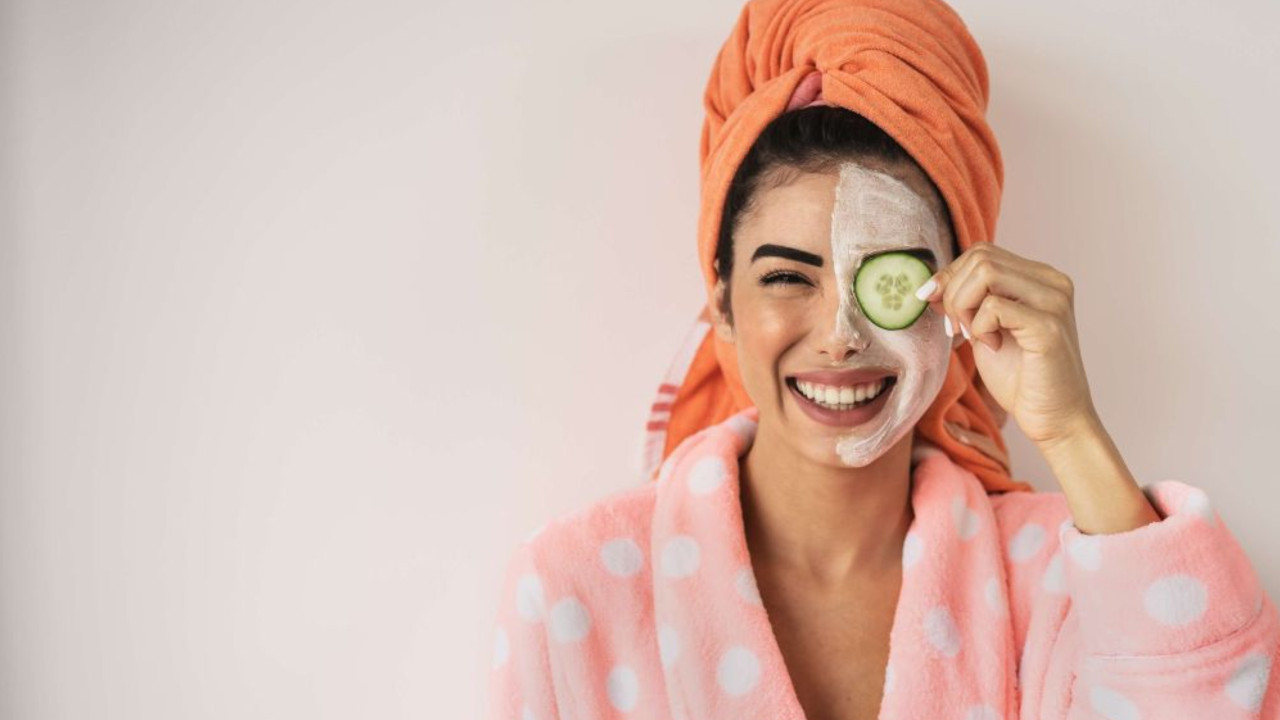Top 10 Ayurveda Products for Skin Care: A Holistic Approach to Radiant Skin
In a world increasingly dominated by synthetic and chemical-based skincare products, Ayurveda offers a refreshing return to nature. Rooted in ancient Indian wisdom, Ayurveda is a 5,000-year-old holistic healing system that emphasizes balance, natural ingredients, and a deep connection between mind, body, and spirit.
When it comes to skincare, Ayurveda provides a unique approach that not only addresses external beauty but also promotes overall well-being. This article explores the principles of Ayurvedic skin care, the key ingredients used, popular products, and how you can incorporate Ayurveda into your daily routine for healthy, glowing skin.
Ayurveda and Skin Care
Ayurveda, which translates to “the science of life,” is based on the belief that health and wellness depend on a delicate balance between the mind, body, and spirit.
According to Ayurveda, the human body is governed by three doshas—Vata, Pitta, and Kapha—which are energies derived from the five elements (earth, water, fire, air, and ether).
Each individual has a unique combination of these doshas, which influences their physical, mental, and emotional characteristics, including their skin type.
In Ayurveda, the skin is considered a reflection of one’s overall health. A balanced dosha leads to clear, radiant skin, while an imbalance can result in issues like acne, dryness, or premature aging. Ayurvedic skincare focuses on restoring this balance through natural remedies, dietary changes, and lifestyle practices.
Key Principles of Ayurvedic Skin Care
Ayurvedic skin care is deeply rooted in balancing the body’s natural energies or doshas. Here’s a breakdown of the principles:
1. Balance of Doshas
- Vata Skin: People with a Vata constitution often have dry, thin skin that is more prone to wrinkles. Their skin requires hydration and nourishment. Moisturizing oils like sesame or almond oil are recommended to restore balance and maintain skin elasticity.
- Pitta Skin: Pitta types typically have sensitive, prone-to-redness skin that may experience acne or inflammation. They require cooling and soothing ingredients like aloe vera, rose water, or cucumber to calm and balance their skin.
- Kapha Skin: Kapha skin is often oily and thick, with a tendency toward congestion and breakouts. It benefits from detoxifying and exfoliating treatments using ingredients like turmeric, neem, and lemon to clear pores and reduce excess oil.
2. Natural Ingredients used in Ayurvedic Skin Care
Ayurveda prioritizes the use of natural, plant-based ingredients. This includes herbs, flowers, and minerals known for their skin-healing properties, such as:
- Turmeric: An anti-inflammatory and antioxidant-rich ingredient that helps brighten the skin and reduce redness.
- Neem: Known for its antibacterial properties, neem helps fight acne and other skin conditions.
- Aloe Vera: Soothing and hydrating, aloe vera is great for calming irritated skin.
- Sandalwood: Ideal for sensitive skin, it helps in cooling and healing inflammation.
- Honey: Moisturizing and antimicrobial, honey is perfect for softening skin and preventing acne.
3. Internal and External Care
Ayurveda teaches that beauty is a reflection of internal health. Therefore, skin care is not just about what is applied externally but also about what you put into your body:
- Diet: Eating foods that are balanced according to your dosha helps nourish your skin. For example, Vata types benefit from warm, oily foods, Pitta types from cooling foods, and Kapha types from light, detoxifying foods.
- Hydration: Drinking plenty of water, herbal teas, or water-infused with herbs such as mint or ginger helps keep the skin hydrated from the inside out.
- Stress Management: Ayurveda emphasizes the importance of mental and emotional balance. Practices like yoga, meditation, and breathing exercises can reduce stress, which in turn helps maintain healthy skin.
This holistic approach ensures that the skin remains healthy, radiant, and balanced, addressing both external needs and internal harmony.
Common Ayurvedic Ingredients Used for Skin Care
Ayurvedic skincare products feature various natural herbs, each selected for its distinct skin benefits. Below are some popular herbs used in Ayurvedic skincare:
1. Turmeric: A golden-yellow root known for its powerful anti-inflammatory and healing properties. Its active compound, curcumin, is widely praised for its skin benefits.
- Benefits: Anti-inflammatory, antibacterial, and antioxidant properties.
- Uses: Brightens the complexion, reduces acne, and helps fade scars.
- How to Use: Mix with honey or yogurt to create a DIY face mask.
2. Neem: A tree with bitter leaves, often called “the village pharmacy” for its powerful detoxifying effects. Neem is revered for its ability to fight various skin conditions and infections.
- Benefits: Purifies the blood and detoxifies the skin.
- Uses: Effectively treats acne, eczema, and other skin infections.
- How to Use: Apply neem oil or use neem-based cleansers.
3. Aloe Vera: A succulent plant known for its cooling and hydrating gel. It has been used for centuries to soothe burns, cuts, and skin irritation.
- Benefits: Soothes, hydrates, and heals the skin.
- Uses: Perfect for soothing sunburns, calming irritation, and moisturizing dry skin.
- How to Use: Directly apply fresh aloe vera gel to the skin.
4. Sandalwood: A fragrant wood known for its calming and cooling effects on the skin. It has been used in Ayurveda for centuries to promote clear and radiant skin.
- Benefits: Cooling and calming effects.
- Uses: Reduces redness, inflammation, and helps achieve a radiant complexion.
- How to Use: Add sandalwood powder to face packs or use as a toner.
5. Ashwagandha: An adaptogenic herb known for reducing stress and promoting overall wellness. It supports healthy skin by balancing hormones and combating environmental stress.
- Benefits: Anti-aging and stress-reducing properties.
- Uses: Enhances skin elasticity and reduces the appearance of fine lines.
- How to Use: Consume as a supplement or apply in face creams.
5. Manjistha: A bright red root known for its blood-purifying and skin-brightening effects. It has been valued for centuries for its ability to improve skin tone and texture.
- Benefits: A powerful blood purifier and skin brightener.
- Uses: Treats pigmentation, acne, and dull skin.
- How to Use: Take as a supplement or apply as a paste.
6. Kumkumadi Oil: A luxurious oil blend of saffron, sandalwood, and other Ayurvedic herbs, known for its rejuvenating qualities. It is highly regarded for its skin-restoring and glow-boosting properties.
- Benefits: A rejuvenating blend of saffron, sandalwood, and other herbs.
- Uses: Promotes glowing and youthful skin.
- How to Use: Apply a few drops as a night serum for best results.
7. Brahmi: An ancient herb known for its cooling properties, often used for its calming effect on the skin and mind. Brahmi is prized for its ability to rejuvenate and soothe the skin.
- Benefits: Nourishes the skin, reduces stress, and improves mental clarity.
- Uses: Helps reduce skin irritation, promotes healthy skin, and can improve skin elasticity.
- How to Use: Use Brahmi-infused oils or creams, or apply as a paste.
Types of Ayurvedic Skin Care Products
Ayurvedic skin care products are designed to cater to every step of your skincare routine. Here are some of the most popular types:
1. Cleansers: Cleansers are products used to remove dirt, oil, makeup, and impurities from the skin’s surface. Ayurvedic cleansers often contain natural ingredients that cleanse without stripping the skin of its essential oils, leaving it nourished and balanced.
- Herbal Ubtans: Traditional powder-based cleansers made from herbs and natural ingredients like gram flour, turmeric, and rose petals.
- Oil Cleansers: Natural oils like coconut or sesame oil that gently cleanse while retaining the skin’s moisture balance.
2. Moisturizers: Moisturizers are used to hydrate and lock in moisture, keeping the skin soft, smooth, and nourished. Ayurvedic moisturizers often include rich, natural ingredients that deeply nourish the skin and help maintain its natural barrier.
- Ghee: A traditional, deeply moisturizing ingredient that nourishes dry skin and promotes softness.
- Herbal Creams: Creams formulated with soothing ingredients like aloe vera, neem, and sandalwood to hydrate and protect the skin.
3. Face Masks: Face masks are treatments that help address specific skin concerns such as excess oil, dryness, or dullness. Ayurvedic masks are made from natural ingredients that purify, hydrate, and balance the skin.
- Multani Mitti: A clay mask known for its ability to absorb excess oil and unclog pores, perfect for oily skin types.
- Turmeric and Sandalwood Masks: These masks brighten and soothe the skin, reducing inflammation and giving the skin a glowing appearance.
4. Serums and Oils: Serums and oils are concentrated treatments that target specific skin issues, providing deeper nourishment or skin repair. Ayurvedic oils and serums are often formulated with potent herbs to enhance skin radiance and vitality.
- Kumkumadi Oil: A luxurious oil blend that helps to brighten the complexion and reduce pigmentation for a glowing skin appearance.
- Bhringraj Oil: Known for promoting healthy skin and hair, this oil helps rejuvenate the skin and improve texture.
5. Exfoliators: Exfoliators are products designed to remove dead skin cells, revealing fresh and smooth skin underneath. Ayurvedic exfoliators typically use gentle, natural scrubbing ingredients that refresh the skin without causing irritation.
- Natural Scrubs: Made from oatmeal, almond, or gram flour, these gentle scrubs exfoliate the skin, leaving it smooth and refreshed.
6. Toners: Toners are liquid products used after cleansing to restore the skin’s pH balance, tighten pores, and hydrate. Ayurvedic toners help soothe the skin while maintaining its natural equilibrium.
- Rose Water: A soothing and hydrating toner that helps balance the skin’s pH and refreshes the complexion.
- Witch Hazel: A natural astringent that tightens pores and controls oil production, making it ideal for oily or acne-prone skin.
These descriptions give a quick understanding of what each type of product does in an Ayurvedic skincare routine!
5. Ayurvedic Skin Care Routines
1. Daily Routine (Dinacharya)
Dinacharya refers to the daily self-care routine, and it emphasizes consistency in skincare for optimal health. This routine combines cleansing, toning, moisturizing, and treatments to maintain skin balance.
- Morning:
Start with an herbal ubtan to cleanse and exfoliate, followed by rose water to tone and hydrate, and finish with a herbal cream to lock in moisture and protect your skin throughout the day. - Evening:
In the evening, oil cleanse to remove makeup and impurities, use a face mask twice a week for deeper cleansing and nourishment, and finish with a serum or oil before bed to rejuvenate the skin overnight.
2. Seasonal Routines (Ritucharya)
In Ayurveda, skincare should adapt to the changing seasons. The balance of the elements in each season affects the skin, so the skincare routine should reflect these changes.
- Summer (Pitta Season):
Summer is associated with heat and excess pitta (fire). Focus on using cooling ingredients like aloe vera and sandalwood, which help soothe and calm the skin, reducing irritation and redness. - Winter (Vata Season):
Winter brings dryness, which increases vata (air). Use nourishing oils and ghee to hydrate and protect your skin from the harsh, dry weather, keeping it soft and moisturized.
Customizing for Doshas
In Ayurveda, the skin is often categorized based on your dosha (vata, pitta, or kapha), and skincare should be customized accordingly to balance each dosha’s unique qualities.
- Vata Skin:
Vata skin tends to be dry, rough, and prone to fine lines. Use hydrating and nourishing products like oils and rich creams to keep the skin moisturized and balanced. - Pitta Skin:
Pitta skin is prone to redness, irritation, and inflammation. Choose cooling and soothing ingredients like aloe vera, cucumber, and sandalwood to calm and reduce inflammation. - Kapha Skin:
Kapha skin can be oily or prone to breakouts. Use detoxifying and exfoliating treatments like natural scrubs or clay masks to help remove excess oil and promote clarity.
By following these Ayurvedic routines, your skincare can be adapted to meet your skin’s needs based on the time of day, season, and your dosha, promoting overall skin health and balance.
Benefits of Ayurvedic Skin Care
1. Natural and Chemical-Free: Safe for all skin types, including sensitive skin, as it uses gentle, plant-based ingredients without harsh chemicals, reducing the risk of irritation.
2. Holistic Approach: Focuses on treating the root cause of skin issues, promoting overall balance in body and mind for healthier skin, rather than just addressing surface symptoms.
3. Long-Term Results: Promotes sustainable skin health, addressing future concerns and providing lasting improvements in skin texture and radiance, with consistent use leading to better results over time.
Top 10 Ayurvedic Brands for Skin Care
1. Forest Essentials: Known for its luxurious, handcrafted products made with high-quality natural ingredients, offering a premium Ayurvedic skincare experience.
2. Kama Ayurveda: Offers a wide range of authentic Ayurvedic formulations, focusing on pure, effective ingredients for holistic skin care.
3. Biotique: Affordable and effective products suitable for everyday use, combining Ayurvedic wisdom with modern formulations for accessible skincare.
4. Himalaya Herbals: Combines the principles of Ayurveda with modern science, offering a broad selection of skin care products for various skin concerns.
5. Dabur: A trusted name in Ayurvedic wellness, Dabur provides reliable and widely used Ayurvedic products for skincare, hair care, and health.
6. Patanjali: Founded by Baba Ramdev, Patanjali offers a wide range of affordable Ayurvedic products, including skin care solutions known for their natural ingredients.
7. Ayur Herbals: Specializes in all-natural skincare products based on Ayurvedic formulations, offering treatments for various skin issues like acne, dryness, and aging.
8. Just Herbs: Focuses on 100% natural, chemical-free skincare products, combining Ayurveda with modern innovations for gentle, effective results.
9. Indulgeo Essentials: Known for their premium skincare oils and serums, Indulgeo Essentials blends Ayurvedic principles with luxurious ingredients for glowing skin.
10. Shahnaz Husain: One of the pioneers in Ayurvedic beauty, Shahnaz Husain offers a wide range of high-quality products focusing on skin rejuvenation and anti-aging benefits.
These brands bring a diverse range of Ayurvedic products, from affordable to premium, all grounded in traditional wisdom combined with modern skincare innovations.
DIY Ayurvedic Skin Care Recipes
1. Turmeric and Honey Face Mask: Mix 1 tsp of turmeric powder with 1 tbsp of honey. Apply to the face, leave it on for 15 minutes, and rinse off.
- Turmeric helps brighten the skin, while honey nourishes and hydrates.
2. Neem and Tulsi Cleanser: Boil neem leaves and tulsi (holy basil) in water, strain, and use the mixture as a face wash.
- Neem has antibacterial properties, and tulsi soothes and purifies the skin.
3. Sandalwood and Rose Water Toner: Mix 1 tsp of sandalwood powder with 2 tbsp of rose water. Apply using a cotton pad after cleansing.
- Sandalwood cools and calms the skin, while rose water helps balance and hydrate.
4. Aloe Vera and Cucumber Face Pack: Blend 1 tbsp of aloe vera gel with 2 tbsp of cucumber juice. Apply to the face and leave it on for 20 minutes before rinsing.
- Aloe vera soothes and hydrates, while cucumber helps cool and refresh the skin.
5. Gram Flour and Turmeric Scrub: Mix 1 tbsp of gram flour with a pinch of turmeric and a few drops of water to form a paste. Gently scrub onto the face and rinse off.
- Gram flour exfoliates the skin while turmeric brightens and helps with blemishes.
6. Multani Mitti (Fuller’s Earth) Face Mask: Mix 2 tbsp of Multani mitti with rose water to form a paste. Apply to the face and let it dry for 15–20 minutes before washing off.
- Multani mitti absorbs excess oil and unclogs pores, leaving the skin refreshed.
7. Coconut Oil and Lavender Night Cream: Mix 1 tbsp of coconut oil with 2–3 drops of lavender essential oil. Massage into the face before bedtime.
Coconut oil deeply nourishes, while lavender helps calm and relax the skin.
8. Honey and Lemon Brightening Scrub: Mix 1 tbsp of honey with 1 tsp of lemon juice. Gently massage onto the skin and leave for 10 minutes before rinsing off.
- Honey hydrates, while lemon brightens and helps with pigmentation.
9. Rose Water and Glycerin Hydrating Mist: Mix 2 tbsp of rose water with 1 tbsp of glycerin in a spray bottle. Mist onto your face throughout the day for a refreshing boost.
- Rose water hydrates and balances, while glycerin locks in moisture.
10. Saffron and Milk Brightening Mask: Soak 2–3 strands of saffron in 2 tbsp of milk. Apply the mixture to the face and leave it on for 15 minutes.
- Saffron brightens the skin, while milk gently nourishes and softens.
Basil and Honey Acne Mask: Crush fresh basil leaves and mix them with 1 tbsp of honey. Apply to the affected areas for 15 minutes before rinsing.
- Basil has antibacterial properties, while honey moisturizes and calms inflammation.
Avocado and Honey Hydration Mask: Mash 1/2 avocado and mix with 1 tbsp of honey. Apply to the face and leave for 20 minutes before rinsing off.
- Avocado deeply nourishes and hydrates, while honey adds moisture and softness.
These Ayurvedic DIY recipes can help address various skin concerns naturally and effectively using ingredients that have been used for centuries!
Precautions and Tips
- Always Perform a Patch Test: Before trying any new product or DIY recipe, test it on a small area of your skin to ensure you don’t have an allergic reaction or irritation.
- Consult an Ayurvedic Practitioner: For personalized advice, consult with an Ayurvedic expert, especially if you have specific skin concerns or conditions, to tailor your routine to your unique dosha.
- Avoid Overusing Potent Herbs: Herbs like turmeric, while beneficial, can stain the skin. Use them sparingly and avoid overuse to prevent discoloration or irritation.
These simple tips will help ensure the safe and effective use of Ayurvedic skincare!
FAQs
1. What does radiant skin mean?
Radiant skin refers to a healthy, glowing complexion that looks fresh, bright, and youthful. It typically indicates well-hydrated, smooth, and even-toned skin.
2. What makes skin radiant?
Skin becomes radiant when it is properly hydrated, nourished, and free from dullness or blemishes. A balanced skincare routine with ingredients like vitamin C, hyaluronic acid, and natural oils can enhance skin radiance.
3. What is skin radiance?
Skin radiance is the natural glow and luminosity that comes from healthy skin. It’s characterized by a smooth texture, even skin tone, and a luminous finish.
4. Is radiant skin attractive?
Yes, radiant skin is often considered attractive as it signifies health, youthfulness, and vitality. Glowing skin can also enhance your overall appearance and confidence.
5. How to get spotless skin in 7 days?
To achieve clearer skin in a week, focus on gentle exfoliation, hydration, and using products with ingredients like salicylic acid, vitamin C, and aloe vera. Avoid harsh chemicals and sun exposure.
6. What is called radiant?
Radiant refers to something that shines or glows brightly, often associated with skin that looks fresh, healthy, and full of life.
7. How to get Korean glass skin?
To achieve “glass skin,” focus on a multi-step skincare routine involving deep hydration, exfoliation, and a combination of serums and masks that target smoothness, glow, and plumpness.
8. What is best for radiant skin?
The best products for radiant skin include moisturizers with vitamin C, exfoliators, and face oils that lock in hydration and promote a natural glow. Regular use of sunscreen is also essential.
9. Why is my skin not radiant?
Lack of radiance can be caused by factors like dehydration, dullness, uneven skin tone, or lack of exfoliation. Poor diet, stress, or inadequate sleep can also impact skin’s glow.
10. How to get radiance on the face?
To get radiance, use brightening products like vitamin C serums, gentle exfoliators, and hydrating face masks. Regular moisturizing and a healthy diet rich in antioxidants also contribute to glowing skin.
11. Does radiant mean glow?
Yes, radiant skin refers to a glowing, healthy complexion. It’s often used interchangeably with “glow” as it describes skin that is vibrant, smooth, and well-hydrated.
12. How to get fair skin in 1 week?
Achieving fairer skin in one week is unrealistic and often unhealthy. Focus instead on brightening your complexion and improving skin texture through gentle exfoliation, hydration, and sun protection.
Ayurveda offers a timeless, natural approach to skincare that goes beyond superficial beauty. By understanding your dosha, using the right ingredients, and adopting a holistic routine, you can achieve healthy, radiant skin that glows from within.

























